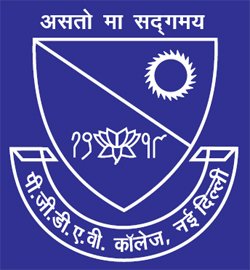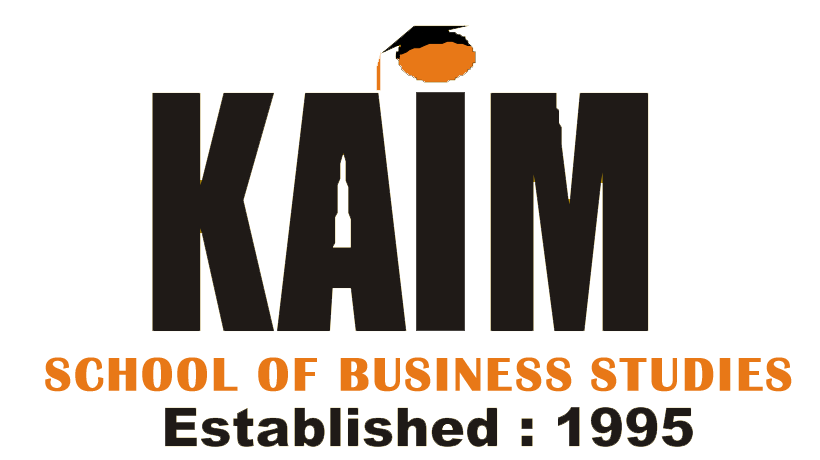Bachelor of Commerce (PROGRAMME) [B.COM (PROGRAMME)]
3 Years
B.Com. (Programme) Overview:
The B.Com. Programme is a generalized course designed to provide students with a strong foundation in commerce. Unlike the B.Com. (Hons.) program, the B.Com. Programme focuses on a more general approach to the various aspects of commerce without offering a specialization in specific subjects like accounting or finance. This flexibility allows students to gain knowledge across a range of areas, while also developing skills for various professional careers.
Program Structure:
The B.Com. (Programme) is divided into six semesters (two semesters per year), which cover a wide range of core subjects and electives.
Year 1 (Semester 1 & 2):
In the first year, students are introduced to the fundamental concepts of commerce and business.
-
Core Subjects:
-
Financial Accounting: Basics of accounting, financial statements, and bookkeeping.
-
Business Economics: Microeconomic and macroeconomic concepts as they apply to business.
-
Business Mathematics: Mathematical techniques used in business decision-making.
-
Business Law: Introduction to the legal environment in which businesses operate.
-
-
Skill Enhancement Courses (SEC): Courses designed to improve practical skills such as communication or computer applications.
Year 2 (Semester 3 & 4):
The second year focuses on advanced commerce subjects and introduces some elective subjects for a more specialized understanding.
-
Core Subjects:
-
Corporate Accounting: Advanced accounting techniques for corporate entities, including balance sheets and profit and loss statements.
-
Cost Accounting: Concepts of costing, cost control, and decision-making in business.
-
Business Organization and Management: Understanding organizational structures, management principles, and business operations.
-
Income Tax Law and Practice: Introduction to taxation and the legal aspects of tax planning.
-
-
Elective Subjects: In the second year, students may choose from a list of elective subjects to gain specialized knowledge in areas such as marketing, human resources, international business, etc.
Year 3 (Semester 5 & 6):
The final year focuses on specialized subjects and the application of knowledge gained in the previous semesters.
-
Core Subjects:
-
Auditing: The study of auditing principles, techniques, and legal regulations.
-
Financial Management: Managing corporate finance, financial markets, investment analysis, and budgeting.
-
Business Communication: Techniques for effective communication in a business environment.
-
Indirect Tax Law: Study of indirect taxes such as GST (Goods and Services Tax) and VAT (Value Added Tax).
-
-
Project/Research Work: Students may be required to complete a project or research work as part of their final-year assessment. This project helps students apply the theoretical knowledge gained during the program.
Core and Elective Subjects:
-
Core Subjects:
-
Financial Accounting
-
Cost Accounting
-
Corporate Accounting
-
Business Economics
-
Income Tax
-
Auditing
-
Financial Management
-
Business Law
-
-
Elective Subjects:
-
Marketing Management
-
Human Resource Management
-
International Business
-
Entrepreneurship
-
Banking and Insurance
-
E-Commerce
-
Students may choose electives based on their interests and career aspirations.
Assessment and Evaluation:
-
Internal Assessments: These may include assignments, projects, quizzes, presentations, and class participation.
-
End-Semester Examinations: The final examinations are held at the end of each semester and assess students on the core and elective subjects studied throughout the semester.
Skills Developed:
The B.Com. (Programme) helps students develop a wide range of skills, including:
-
Accounting and Financial Management: Understanding and applying accounting principles, financial management techniques, and financial reporting.
-
Business Communication: Strong communication skills, both verbal and written, are crucial for business interactions.
-
Problem-Solving and Analytical Thinking: Ability to analyze financial statements, identify issues, and propose solutions.
-
Legal and Regulatory Knowledge: Understanding the legal framework that governs businesses, including taxation and compliance with laws.
-
Time Management: Managing multiple courses, assignments, and projects within a strict timeline.
Career Opportunities After B.Com. (Programme):
Graduates of the B.Com. (Programme) can pursue a wide range of careers in various sectors, such as finance, accounting, business management, taxation, and consulting. Some career options include:
-
Further Studies:
-
M.Com. (Master of Commerce) for in-depth knowledge of commerce and business.
-
M.B.A. (Master of Business Administration) in finance, marketing, human resources, etc.
-
Chartered Accountancy (CA) or Cost and Management Accountancy (CMA) for specialized professional qualifications.
-
-
Corporate Sector:
-
Accountant or Financial Analyst in corporate firms, banks, insurance companies, or multinational corporations.
-
Audit Assistant or Internal Auditor in firms or companies.
-
-
Government Jobs:
-
Appear for competitive exams like UPSC, SSC, Banking Exams, and State PSCs to work in public sector organizations in finance, taxation, auditing, etc.
-
-
Entrepreneurship:
-
Graduates can start their own businesses in fields like accounting, consulting, or financial services.
-
-
Taxation and Consultancy:
-
Work in taxation departments, offering services like tax planning, consulting, or preparation of returns.
-
-
Banking and Insurance:
-
Positions in banks or insurance companies in areas such as loan processing, credit analysis, policy administration, and insurance advisory.
-
Eligibility Criteria:
To be eligible for the B.Com. (Programme), students must meet the following criteria:
-
Completion of Class 12 from a recognized board, preferably with a Commerce stream.
-
Admission is generally based on merit, with cut-off marks being published by the University of Delhi after the Class 12 results are declared.
Admission Process:
-
Application: Students must apply online through the University of Delhi's official admission portal.
-
Cut-Offs: Admissions are based on the cut-off marks determined by the University of Delhi, which may vary each year based on the number of applicants and the Class 12 results.
-
Documents: Required documents include the Class 12 marksheet, ID proof, and category certificates (if applicable).






 OMAWATI686b96fcc7a5c.jpg)